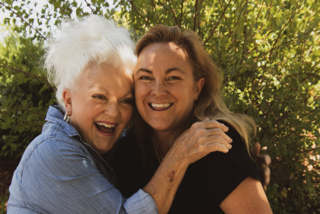Health
A Self-Health List to Remind You to "Get Busy Livin'"
We are ultimately in charge of our own health.
Posted September 17, 2021 Reviewed by Ekua Hagan
Key points
- One can start improving their health by limiting (or eliminating) sugar and making alcohol a treat, not a habit.
- Research shows that exercise can make bones stronger, slowing the rate of bone loss.
- Healthy habits include being thoughtful about everything one eats, as if it were medicinal.
It's almost scary how we can be compared to cars that need to have our points, plugs, electrical systems, and tires checked every year or so. The older you get, however, the more you should offer your body (and your loved ones) the option of keeping it around as many years it can — especially if there are things you can do to prevent something bad-health-wise that may be entirely under your control.
Slowly becoming more educated on this as I begin another milestone decade, I honestly wish I had an executive assistant to oversee all my vital body parts. Someone to push me to get out and complete the cardio. To remove the foods from my house that are bad for me. And stand over me with a whip to do my strength training. But I don’t. My newest desktop sticky note, therefore, is simply labeled “health.” It contains reminders I know I would otherwise forget to look for spread out all over my online calendar. I just know that if I trusted myself to recall when a medical appointment, a lab jab, or well-check is supposed to take place, I might miss something.

We are ultimately in charge of our own health. So how do you remind yourself to pay attention to what you should be doing, health-wise? I have another giant sticky note on my desktop computer in bold, large letters. I can’t help but see every day. It quotes a line from a movie: “Get busy livin’ or get busy dyin.’” Plus a text warning from my 37-year old daughter that reads: “If you don’t move, you’ll turn to stone.”
Inspirational? Nah. No violins playing and photos of sunsets. Just brutal reminders that whether you are 70 or 50, life is short. There is always something you can do today to stay in control of parts of your health. So here are some “self-health” attention-getters:
Heart
Just because you’ve never had a tightening of the chest, dizziness, a tingling arm, or detected a fast heartbeat doesn’t mean you shouldn’t schedule an appointment with a cardiologist to rule out any cardiac issues, especially if they run in your family. Heart disease remains a quiet killer. And issues like blockages or irregular heartbeats aren’t something you can detect on your own. Especially if you (like me) have or lost a parent to heart problems, get checked out.
Diet
Aging well takes work and sacrifice, unfortunately. Drinking as much, eating as much, and “treating” yourself as much as you did when you were younger begins to result in quickly diminishing (unfulfilling) returns as you age. Your body does not use fuel the way it used to. Not paying attention to your weight or your eating regimen will catch up to you. As for which regimen to follow, the internet is replete with suggestions, plans, and testimonials. Begin by limiting/eliminating the sugar, making alcohol a treat instead of a habit, and being thoughtful about everything you eat as if it were medicinal.
Skin
As a member of the generation who encouraged the sun with baby oil, iodine, sunlamps, and many, many hours by the pool, my skin is now a patchwork quilt of freckles mixed in with my Mediterranean moles. While I pay rapt attention to the ravages of aging for beauty reasons, I go to a dermatologist every six months or so to see if any of those spots look suspicious. After three superficial melanomas, I know I can’t take chances. You may not need to go as often, but even if you've never had any issues, a dermatologist will check areas on you you simply can't even see where the sun don't shine.
Bones, muscles, and ligaments
As we age, we lose muscle (which supports bones), and bones become less dense. An inactive lifestyle causes bone wastage. Hormonal changes that affect minerals in bone tissue are primarily caused by menopause in women, and in men, the gradual decline in sex hormones leads to the later development of osteoporosis.
Research shows that exercise can make bones stronger, slowing the rate of bone loss. Balance and coordination exercises, such as tai chi, can help reduce the risk of falls, which is a big one as we age. Broken hips can lead to all other kinds of messy complications. As for exercise, physical activity may delay the onset or progression of osteoporosis, as it slows down the rate at which bone mineral density is reduced. That’s why weight-bearing exercises, such as walking or weight training, are the best types of exercise for the maintenance of bone mass.
I know. Not fun. And we can’t stop aging. But we can slow it and make it easier for ourselves to age well. If doing any of these things means spending even a few more months with your loved ones or fending off illness — well, you do the math. Many of us still feel 35 inside, even if our current age is twice that. It’s as if I were living in an alternate universe to hear my age being spoken out loud. But as I said earlier, no one will stand over us with a whip to take care of ourselves, and if you consider each day a gift, perhaps now is the time to not only write up your own health checklist but also introduce some healthy habits into your life.


